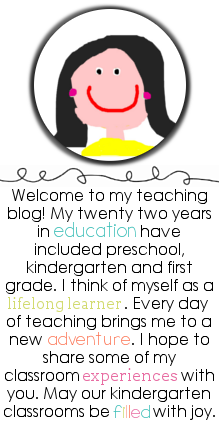Last year, a group of teachers came to visit my classroom to see a reading and writing workshop in action. We had a great conversation about how to go about implement a writing workshop time in your classroom. This post is going to share with you some of the tips and tools I find helpful when getting a workshop up and running! When you begin a writing workshop, you will realize quickly that your students will not only become stronger writers but stronger readers too!
Things to help you get started with Writing Workshop
In order to get students to work independently, we need to establish classroom routines and procedures. If the workshop time is predictable, this will help the students understand their role.
- Each day the teacher begins with a short focus lesson.
- The student quickly find their writing spot and begin to work.
- The teacher confers with students and works with others in small groups.
- At the end of the writing time, there is an opportunity to share.
Time Structure:
1. Focus Lesson/Mini-Lesson (10 minutes)
2. Time to write (30 minutes)
3. Sharing time (5-10 minutes)
Writing Workshop Tips
It is crucial that the classroom teacher establishes rules and routines. At the start of writing workshop, have folders and tools set up at tables before you have students meet on the rug for the focus lesson. During the work time, students should not be getting up to sharpen pencils or trading writing tools. All of these little management issues make a HUGE difference.
Students should have 30-40 minutes to write every day. We can’t expect kids to get better at doing something if they are not given lots of time to do it. At the beginning of kindergarten, this time would be shorter and increase over time. You should try to write at least four days a week.
Provide students with a lot of time to rehearse their story by telling it to a writing partner. There is a saying that, If they can’t say it, they can’t write it. Talk is important in a primary classroom, students need to be able to tell their story out loud before they draw and compose their work. In the upper grades, this is often referred to as rehearsal.
It is important that you begin writing workshop with a ten-minute focus/mini-lesson on the rug before students go off to write. When I first started teaching writing workshop, I did not provide a lesson every day, I would just have students take out their folders and get started. When I started to implement a focus lesson each day, the writing got better, much better.
Every day you want to teach your students something that will help them as writers. The focus lesson should have a visual demonstration for students. Remember when a mini lesson goes on too long, students start to tune out. Your lesson should not feel like an assignment, but it should get them excited to try a new idea or technique. Students are given lots of choices during the workshop.
Create anchor charts with your class. Make sure your students know the purpose of the chart. You might release kids from the rug by pointing to the charts on the wall and saying something such as, “ If you are working on illustrations today you may go, if you are working on sounding out words you may get started, adding action to your character, etc...”
At the start of the workshop, the teacher should spend the first five minutes walking around the room giving positive feedback to kids. This feedback can be verbal or nonverbal. The teachers tone should be one of joy and excitement with the work the students are doing. In the middle of the workshop, you may stop to point out the work someone is doing that connects to the teaching. When you MAKE SOMEONE FAMOUS, you will suddenly see lots of other students trying to become famous too!
At the end of the workshop, you want to leave time for sharing. There is a lot that can be said about the share time, and I plan to write about it soon. It is my suggestion to have only three children share at a time. Some days you may just have students share with their writing partner.
In my building, we met at grade levels and established how many weeks the units of study will take. I Recently had the opportunity to hear Lucy Calkins talk about the units. She made it clear to the audience that the units of study are meant to be a lesson a day for five-six weeks. Of course, there has to be flexibility in our schedules, and you may not get to a lesson every day, but you should have a deadline and try to stick to it. Students should be told about the deadline (mark on classroom calendar).
It is important to have some celebration at the end of the unit. This end of the unit celebration could simply be sharing your story in small groups or with another classroom. In a primary classroom, you may type up a child’s story and put it on the bookshelf.
It is important to have some celebration at the end of the unit. This end of the unit celebration could simply be sharing your story in small groups or with another classroom. In a primary classroom, you may type up a child’s story and put it on the bookshelf.
When I first started teaching, there were limited resources for teaching writing. Now, there is a great deal of resources available. You do not need to buy a very expensive writing program. A valuable resource for someone new to writing workshop is the book About the Author, by Katie Wood Ray and Lisa Cleveland and the book Talking, Drawing, Writing by Mary Ellen Giacobbe and Martha Horn
To me, writing workshop is the heart of the classroom. If I could have any subject to teach all day, it would be writing. For one thing, writing is inexpensive all you need is paper, a stapler and writing tools. Writing is an essential life skill. When students learn that they have the ability to communicate with paper and pen, it can be powerful, and life is changing.



























A very helpful post. Thank you!
ReplyDeleteThis post was a GREAT read! Thank you for taking the time to SHARE this! Amber ~ Kindergarten Rocks Blog
ReplyDeleteBarbra and Amber,
ReplyDeleteThank you both for your comments! I am glad it was helpful! Happy week. Melissa
It's so important that the work you're talking about starts with kindergarten. Thank you for doing what you do with our youngest writers. It makes such a difference.
ReplyDeleteThis is a very insightful and well-written post that clearly explains the topic in a simple and engaging way. I especially liked how the key points were broken down, making it easy for readers to understand and relate them to real academic challenges. Many students struggle with time management and quality expectations, and using a reliable academic writing service in the middle of their academic journey can genuinely help them stay on track. Thanks for sharing such valuable and practical information great read overall!
ReplyDelete